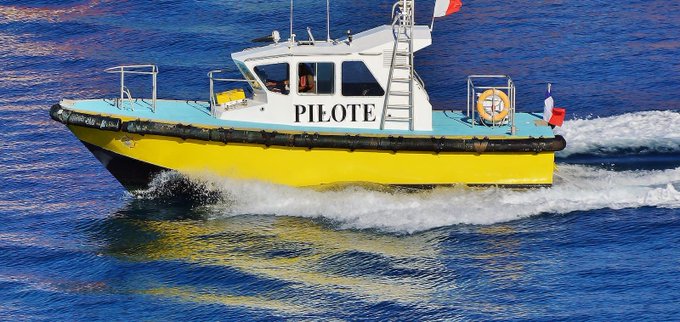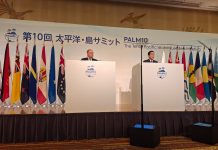Colonised peoples have rights to resources, on land and in the oceans, and this must be recognised.
By Nic Maclellan
Both the Australian Labour Party and Coalition have expressed support for France to remain as a Pacific power, seeing the French Republic as a stable, democratic, Western ally at a time of growing Chinese influence in the Pacific Islands.
But this general silence in Australian politics about the rights of colonised people in France’s Pacific dependencies shouldn’t extend to Australia’s international relations think tanks. Recent analysis of the strategic partnership between France and Australia have said little or nothing about local’s rights (a report from the Lowy Institute was one such example, as was another from the Australian Strategic Policy Institute).
The recent article by Alexandre Dayant (Not one, but two new points of tension for France in the Pacific) on the maritime boundary dispute between France and Vanuatu is similarly silent on the rights of colonised people.
Dayant claims that “the vast Exclusive Economic Zone surrounding the French Pacific represents a maritime resource position that gives France exclusive rights to enormous fish stock.” Yet I would argue this misrepresents international law relating to the control of resources in colonial contexts. This goes well beyond the Hunter and Matthew islands issue.
Under international law, France is an administering power of non-self-governing territories and has obligations to the people of its colonies. In contrast to the notion that France has “exclusive rights” over maritime resources, successive resolutions of the UN General Assembly have highlighted the rights of colonised peoples to these resources, on land and in the oceans.
For example, a UN resolution of 18 December 2012 reaffirms that “natural resources are the heritage of the peoples of the Non-Self-Governing Territories, including the indigenous populations”. It goes further, and:
calls upon the administering Powers to ensure that the exploitation of the marine and other natural resources in the Non-Self-Governing Territories under their administration is not in violation of the relevant resolutions of the United Nations, and does not adversely affect the interests of the peoples of those Territories.
The rights of people living in non-self-governing territories are also reaffirmed in the UN Convention on the Law of the Sea (UNCLOS) and repeated resolutions of the UN Special Committee on Decolonisation.
Kanak leaders in New Caledonia have long argued that resource management and control is a crucial development priority for their peoples. Likewise, Maohi leaders in French Polynesia. Former senator for French Polynesia Richard Ariihau Tuheiava told the UN Special Committee on Decolonisation:
We have continually emphasised the critical nature of the resource question as a core issue for our future development. Whether or not these resources are considered in Paris to be ‘strategic’ is irrelevant to the applicability of international legal decisions, which place the ownership of natural resources with the people of the non‐self‐governing territories.
After French Polynesia was re-listed with the UN Special Committee on Decolonisation in 2013, the UN reaffirmed “the inalienable rights of the people of French Polynesia to the ownership, control and disposal of their natural resources, including marine resources and undersea minerals.”
Control of resources is central to other self-determination struggles across Melanesia (from Freeport in West Papua to Panguna in Bougainville and nickel in New Caledonia).
Australia’s neighbours are well aware that Australian governments do not come to this discussion with clean hands, given the long-running dispute over oil in the Timor Gap, the bugging of Timor-Leste’s cabinet during maritime boundary negotiations, and our government’s shameful hounding of Witness K and lawyer Bernard Collaery. Geoscience Australia and France’s Extraplac program have jointly explored international waters between Queensland and New Caledonia, to determine the presence of a new petroleum reserve in the Capel and Faust basins.
With regard to Matthew and Hunter islands, Dayant’s description of the issue as “to date, relatively uninteresting” symbolises the widespread denial of long-standing claims by Pacific peoples. The dispute over the maritime boundary has been a sore point for decades, souring relations between Port Vila and Paris.
In a report “France and the Blue Pacific” published in Asia & the Pacific Policy Studies at the Australian National University, I have detailed how maritime boundary disputes are central to the regional oceans agenda and have crucial economic implications for Australia’s island neighbours. Pacific countries are seeking to increase revenues from foreign fishing fleets operating in their Exclusive Economic Zones (EEZs) and manage the growing interest of transnational corporations in the exploitation of deep-sea resources.
As the Pacific Islands Forum advances its Blue Pacific agenda, the resolution of these disputes is a central focus of the regional organisation. This is clearly shown in many recent statements by Forum Secretary General Dame Meg Taylor. As Dame Meg noted in a speech in Canberra last year:
The settlement of maritime boundaries provides certainty to the ownership of our ocean space, as Pacific people taking control of our domain, which is critical to managing our ocean resources, biodiversity, ecosystems and data, as well as for fighting the impacts of climate change.
But a Canberra consensus sees France as a bulwark against Chinese influence in the islands. This is undercut as local governments and businesses in France’s non-self-governing territories are seeking more engagement with Beijing. China is now New Caledonia’s largest trading partner – based largely on nickel exports – after Clive Palmer closed the Yabulu nickel smelter in Townsville. New Caledonia’s Northern Province, administered by the FLNKS independence movement, has taken a 51% ownership in a nickel smelter in China through the mining company Société minière du sud Pacifique (SMSP).
In this light, supporting French colonialism is a short-sighted policy that will rebound as China continues its push in the region. Australia should play a more active role to support self-determination across the region.
SOURCE: THE INTERPRETER/PACNEWS


















